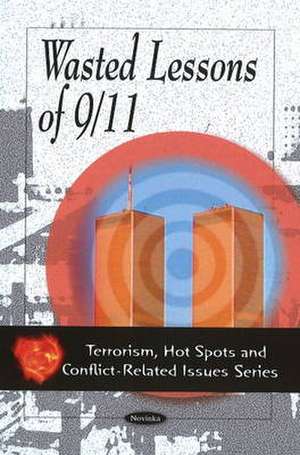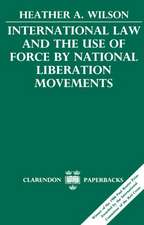Wasted Lessons of 9/11
Autor U.S. House of Representativesen Limba Engleză Paperback – 31 mar 2009
Preț: 301.30 lei
Preț vechi: 406.82 lei
-26% Nou
Puncte Express: 452
Preț estimativ în valută:
57.65€ • 60.36$ • 47.70£
57.65€ • 60.36$ • 47.70£
Carte disponibilă
Livrare economică 17-31 martie
Preluare comenzi: 021 569.72.76
Specificații
ISBN-13: 9781606926406
ISBN-10: 1606926403
Pagini: 87
Ilustrații: tables
Dimensiuni: 153 x 226 x 9 mm
Greutate: 0.18 kg
Editura: Nova Science Publishers Inc
ISBN-10: 1606926403
Pagini: 87
Ilustrații: tables
Dimensiuni: 153 x 226 x 9 mm
Greutate: 0.18 kg
Editura: Nova Science Publishers Inc
Cuprins
Preface; Executive Summary; Aviation Security; Rail and Public Transportation Security; Port Security; Information Sharing; Privacy and Civil Liberties; Emergency Response; Biosurveillance; Private Sector Preparedness; National Security; Index.












